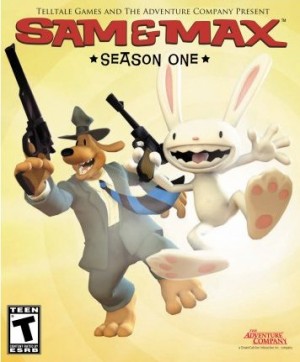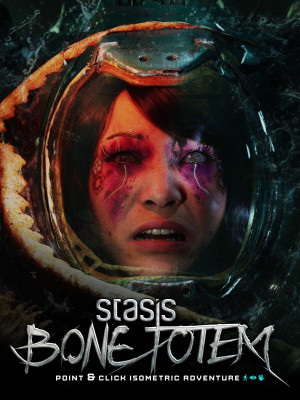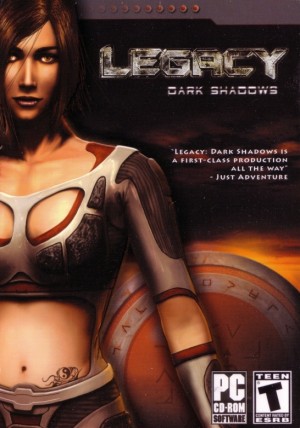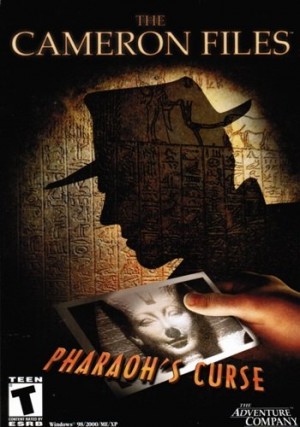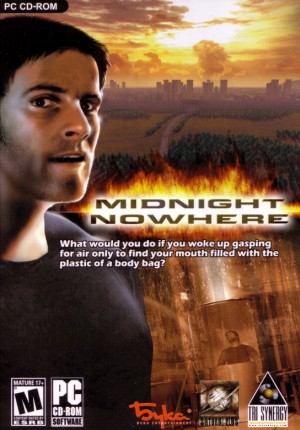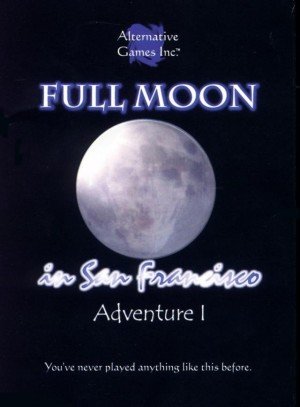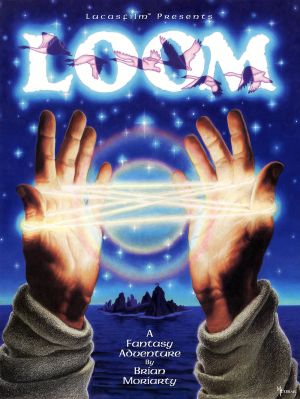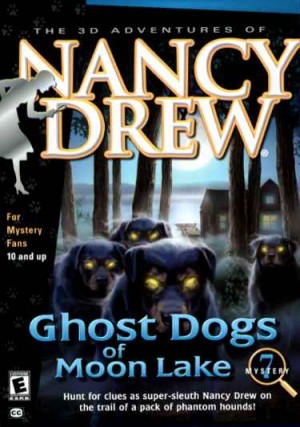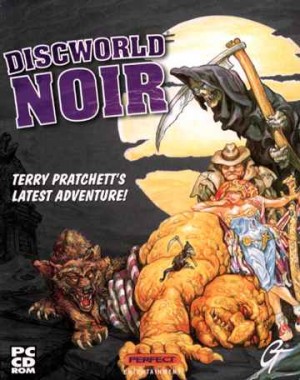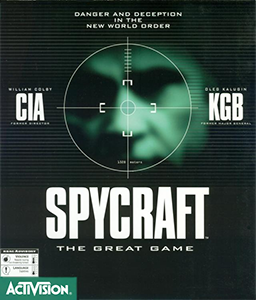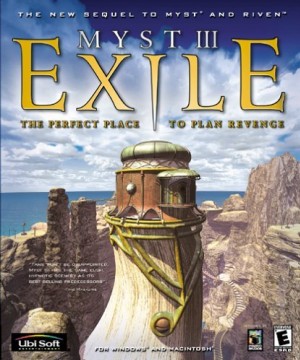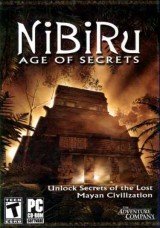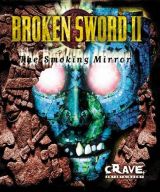Review for Sam & Max: Season One
I have to tell you that writing this review qualifies as an "unforseen occurence" for me. If you had come to me three years ago and said "Hey, at this time in 2007, you'll be reviewing a compilation of the next six Sam & Max games" I likely would have dismissed you out of hand. Three years ago the sting of Sam & Max: Freelance Police was still fresh, and still bitter to all fans of adventure games. The company that would later come to be known as Telltale Games existed mostly as an idea; the first public interview with the company's principals had not yet been given. The future of the Sam & Max license was as uncertain as ever--and it seemed the future of the genre was just as questionable.
Thankfully, I'm certain that's the last time I'll ever have to reference the cancellation of Freelance Police in my writing, because those days are once and for all laid to rest now that we have seen the full realization of the new era of Sam & Max. Having secured the license, secured the funding, and most importantly, secured the necessary creative talent to make the game that the license deserves, Telltale Games went on to accomplish something that no similar episodic adventure project has yet accomplished: actual completion. That completion has now given birth to the box set that collects Sam & Max's first six modern episodes, Sam & Max: Season One. It's a packaged reminder of all the reasons that fans of the characters, and fans of the genre, have had to rejoice over the past eight months--and at the same time, a subtle reminder that there's still room for improvement in the pending Season Two.
I didn't spend eleventy-odd hours of my life writing reviews of the six individual episodes for nothing, so if you're looking for specific plot details, I refer you to my original reviews. But there were some common themes that continued to find their way into each game. The most important is the excellence of the technical aspects. The cartoonish, absurdist nature of Steve Purcell's characters is captured perfectly and combined with an enthusiastically colorful world that is at its best the stranger it gets (as Abe Lincoln Must Die! and Reality 2.0 bear witness to). Jared Emerson-Johnson's musical score of oddball jazz is never overbearing but always moderately amusing, and successful at properly framing the scene--and hits a few nostalgic RPG notes in Reality 2.0 that made me happier than I'll ever be comfortable admitting.
Even with a beautiful and vibrant world around them, Sam & Max are almost useless characters without a whole lot of inappropriate and questionable dialogue humor. Playing through the entire season again shows a noticeable progression in the heights (or maybe depths) that the writers aimed for. Somewhere between The Mole, The Mob, and the Meatball and Abe Lincoln, the safety net was apparently thrown out the window and the characters never really looked back. Even in the first few episodes there are plenty of good lines, but the momentum definitely picks up with the fourth episode. The episodes rely heavily on the re-use of existing elements, and it seems certain as the season progresses that Sybil the fortune teller/publisher/queen and Bosco the (In)convenience store owner will be pushed past their usefulness, but somehow they continue to be interesting and amusing (and useful) supporting characters all the way through the last note of Bright Side of the Moon.
However, the packaging of the entire season together tends to underscore part of the weakness of the episodic execution: the plot, which has to do with a large-scale mind control conspiracy (or so I'm told, as I was too busy laughing at the angry arcade machine), does not boast a great deal of coherence between episodes and by the time the sixth episode is complete, you'll have long forgotten all of the first two or three episodes and what they contributed to the overall storyline. Now, I'm not saying I expect some type of cartoon adventure Prison Break here, but if a series will refer to itself as episodic and market itself on that concept, I would have hoped for a bit more of a genuine story thread running through the games. Playing them in quick succession reminds me that this is really a sequence of great but short games, rather than one large fantastic game. In fact, I'm not sure there would be much detraction to playing the episodes out of order, apart from the last.
Season One, in its entirety, probably offers somewhere between 11 and 14 hours of playing time. That's very comparable to most modern adventures, although because there is so much re-use I think it will be healthy for first time players to play through an episode, and then walk away for a bit--as good as the characters and dialogue are, they are best in small, manageable doses (which really proves the validity of the episodic model, I suppose). I doubt any gamer, even the more puzzle-challenged among us, will be able to squeeze more than 14 hours out of the season, even after exhausting all look-at and dialogue options. The reason for this is simple: Telltale's goal throughout the season is for players to proceed through the story with minimum frustration, and this translates to a general lack of difficult puzzles. Most of the puzzles take a bit of thought and consideration, but never to a point of consternation (as an example, I point to the War Room door guard puzzle from Abe Lincoln, possibly my favorite individual puzzle ever in an adventure game).
As you would hope with a box set of this nature, there are some extras to be found, though nothing remarkable. Not to be confused with the extras provided on Telltale's own exclusive DVD release, the retail version of Season One from JoWood/TAC features a fifteen-minute video interviewing most of the essential creative talent behind the season, which provides an interesting, though not earth-shattering, peek behind the curtain. There are also some trailers, wallpaper, and other miscellaneous goodies, including an original design by Steve Purcell on a small paper poster. As is usually the case with box sets, the extras are a nice addition but not reason alone to own the box set. The games themselves are 100% identical to the original release versions, and the interface to access them is not as creative as you may have hoped. In addition, the entire season uses a glut of hard disk space but still requires the CD-ROM in order to play. If you've already paid for the individual episodes, or downloaded them through GameTap, you simply may not find the extras a compelling enough reason to shell out this money--but if your goal is simply to support Telltale and their restoration of classic-style adventure gaming, don't let me talk you out of it!
There are clear peaks and valleys during the season--the episodes start strong with Culture Shock, slide downhill a bit with Situation: Comedy and The Mole, then rebound sharply for the spectacular duo of Abe Lincoln and Reality 2.0, and then finally settle back to earth with the occasionally problematic Bright Side of the Moon. Because of the constant recycling of elements, and the lack of a well-defined story thread, you should be advised that to buy the Season One set is to purchase a collection of excellent, short comedy adventures, and the whole concept of a true "season" has yet to be realized to its true potential. But we already know that we're getting Season Two, and that's enough to make any classic adventure game fan happy. For those who are longtime fans of the characters, these games are a delightful homage to everything that's great about the franchise; for those new to the party, you'll fall in love with the absurdity before you can say "Great grinning head of John the Baptist." In either case, consider Sam & Max: Season One an important achievement for the genre and a true must-play collection.




